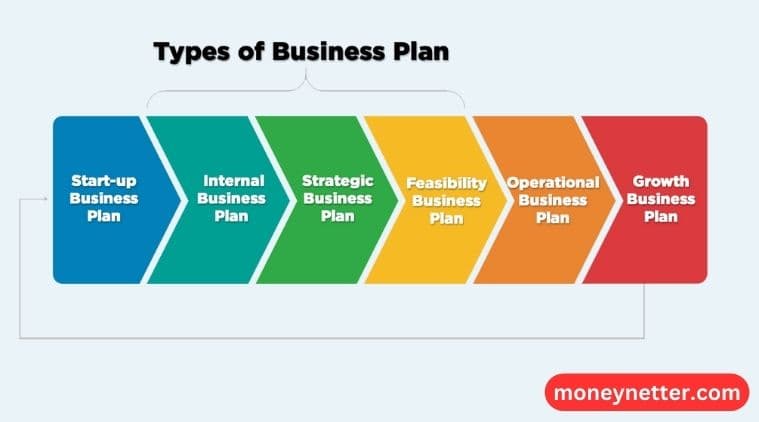Entrepreneurship is a journey that requires careful planning, dedication, and hard work. One of the key components of this journey is the creation of a business plan.
A business plan in entrepreneurship is a written document that outlines the objectives, strategies, and financial projections of a new or existing business. It is an essential tool for entrepreneurs to define their goals, assess the market and competition, and create a roadmap to achieve their objectives.
Whether you are starting a new business or looking to grow an existing one, a well-written business plan can help guide your decision-making and increase your chances of success.
In this article, we will explore the different types of business plans, their importance, and how to create a business plan that will set you on the path to success in entrepreneurship.
Executive Summary
The executive summary is the first section of your business plan, and it should provide a brief overview of your business plan. It should include your business concept, target market, competition, and financial projections.
Your executive summary should be brief and to the point, and it should provide the reader with a clear understanding of your business plan.
Business Description
The business description section of your business plan should provide a detailed description of your business. It should include your mission, vision, and values. You should also describe the products or services you offer, your target market, and your competitive advantages.
Market Analysis
The market analysis section of your business plan should provide an in-depth analysis of your target market. This includes demographic data, trends, and competitor analysis. You should also include information about your industry, such as market size, growth potential, and major trends.
Marketing Strategy
Your marketing strategy is how you will promote your business to your target market. This section of your business plan should outline your product or service offerings, pricing strategy, distribution channels, and promotional tactics.
Your marketing strategy should be designed to attract and retain customers, and it should be aligned with your overall business objectives.
Operations Plan
The operations plan section of your business plan should outline how your business will operate on a day-to-day basis. This includes staffing, inventory management, and production processes. You should also include information about your suppliers, equipment, and facilities.
Financial Plan
Your financial plan is a critical component of your business plan. It should include your projected financial statements, including your income statement, balance sheet, and cash flow statement.
You should also include information about your funding requirements and funding sources. Your financial plan should be realistic and based on sound financial assumptions.
Risk Management Plan
The risk management plan section of your business plan should identify potential risks and challenges that your business may face. This includes operational, financial, and legal risks. You should also outline strategies for mitigating those risks.
Types of Business Plans

There are several types of business plans that an entrepreneur can create depending on the specific needs and goals of the business. Here are some of the most common types of business plans:
- Startup Business Plan – This is the most common type of business plan and is created by entrepreneurs who are starting a new business. It typically includes information about the business concept, target market, competition, marketing strategy, operations plan, and financial projections.
- Internal Business Plan – This type of business plan is created for internal purposes, such as to guide the company’s direction and operations. It may be less formal than a startup business plan and may only include key elements such as goals, strategies, and objectives.
- Strategic Business Plan – This type of business plan is designed to guide the long-term strategy of the business. It typically includes an analysis of the market, competition, and trends, and outlines the company’s vision, mission, and values.
- Operational Business Plan – This type of business plan is focused on the day-to-day operations of the business. It may include information about staffing, production processes, inventory management, and other operational details.
- Growth Business Plan – This type of business plan is designed to guide the growth of the business. It may include information about expansion plans, new product or service offerings, and marketing strategies to reach new markets.
- Feasibility Study – A feasibility study is a type of business plan that is used to assess the viability of a new business or product idea. It typically includes an analysis of the market, competition, and financial projections to determine if the idea is feasible.
- Acquisition Business Plan – This type of business plan is created when a business is considering acquiring another business. It typically includes an analysis of the target company, market, competition, and financial projections.
Each type of business plan serves a different purpose and may be tailored to meet the specific needs of the business. It’s important for entrepreneurs to choose the right type of business plan that will help them achieve their goals and objectives.
FAQ of business plan in entrepreneurship
1. What is a business plan?
A business plan is a written document that outlines the objectives, strategies, and financial projections of a business. It is a roadmap that helps entrepreneurs to define their goals and create a plan to achieve them.
2. Why is a business plan important?
A business plan is important because it helps entrepreneurs to clarify their business goals, target market, competition, and financial projections. It also helps to identify potential risks and challenges that the business may face and provides strategies for mitigating those risks. A well-written business plan is also essential for securing funding from investors or lenders.
3. What should be included in a business plan?
A business plan should include an executive summary, business description, market analysis, marketing strategy, operations plan, financial plan, and risk management plan. These sections provide a comprehensive overview of the business and its objectives, strategies, and financial projections.
4. How long should a business plan be?
The length of a business plan can vary depending on the complexity of the business and the intended audience. A typical business plan can range from 20 to 40 pages, but it can be shorter or longer depending on the specific needs of the business.
5. How often should a business plan be updated?
A business plan should be updated regularly to reflect changes in the business, market, and industry. It is recommended that entrepreneurs review and update their business plans at least once a year or whenever there are significant changes in the business.
6. Do all businesses need a business plan?
While not all businesses may require a formal business plan, it is recommended that entrepreneurs create a plan to help guide their business strategy and operations. A business plan can also be useful for securing funding from investors or lenders.
7. Where can I find resources for creating a business plan?
There are many resources available for creating a business plan, including online templates, business plan software, and entrepreneurship courses or workshops. It can also be helpful to seek guidance from a business mentor or advisor.
8. business Plan pdf?
Click Here to download the business plan pdf.
Conclusion
A business plan is a crucial tool for any entrepreneur. It provides a roadmap for your business and helps you stay focused and on track as you work towards achieving your goals.
By following the steps outlined in this article, you can create a successful business plan that will help you achieve your entrepreneurial dreams. Remember that a business plan is not set in stone and may need to be revised over time as your business evolves.
Read Now >>
How did you like this information about “Business Plan in Entrepreneurship”? You must tell your opinion by commenting in the comment box.
Thank you.

